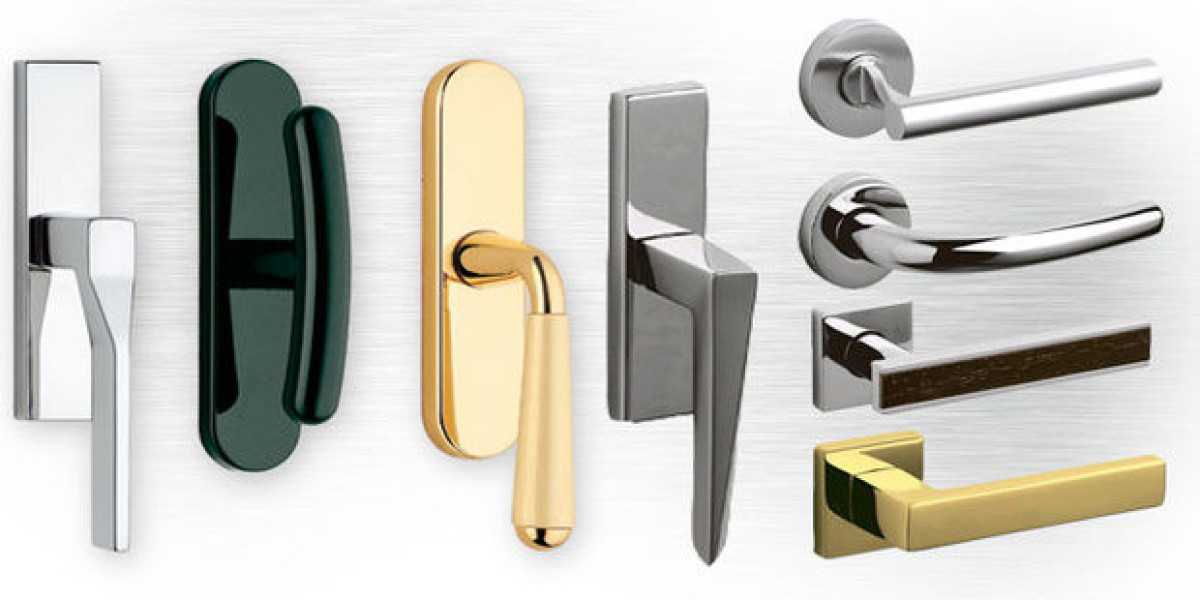Door hardware plays a crucial role in both residential and commercial buildings, offering security, functionality, and aesthetic appeal. From door handles to locks and hinges, selecting the right hardware is essential for ensuring safety, convenience, and design consistency. In this guide, we’ll explore different types of door hardware, their functions, and key considerations when choosing the best options for your needs.
The Importance of Door Hardware
Door hardware is not just about aesthetics; it serves several essential functions:
Security: High-quality locks and deadbolts protect homes and businesses from unauthorized access.
Accessibility: Properly designed handles and hinges make doors easy to operate for individuals of all abilities.
Durability: Well-constructed door hardware ensures long-lasting performance and resistance to wear and tear.
Aesthetics: The right style and finish can complement the overall design of a space.
Types of Door Hardware
There are numerous types of door hardware, each serving a specific function. Here are some of the most common:
Door Handles and Knobs
Door handles and knobs are among the most frequently used door hardware components. They come in various styles, including:
Lever Handles: Common in commercial spaces, they provide ease of use and are ADA-compliant.
Knob Handles: More traditional, but can be harder to operate for individuals with limited mobility.
Pull Handles: Often found on glass doors, barn doors, and commercial entrances.
Locks and Deadbolts
Locks provide security for doors and come in various forms:
Deadbolts: Offer high-level security and are commonly used in exterior doors.
Knob Locks: Integrated into door knobs but not as secure as deadbolts.
Smart Locks: Electronic locks that can be controlled via a smartphone or keypad.
Mortise Locks: Heavy-duty locks often used in commercial and high-security applications.
Hinges
Hinges connect the door to the frame, allowing it to open and close smoothly. Common types include:
Butt Hinges: The most common type, used in both residential and commercial doors.
Piano Hinges: Also called continuous hinges, they run along the entire length of the door.
Spring Hinges: Help doors close automatically, often used for fire doors.
Ball Bearing Hinges: Designed for heavy doors, reducing friction for smooth operation.
Door Closers
Door closers ensure that doors close automatically after being opened. These are crucial in commercial settings to maintain security and fire safety. Types include:
Surface-Mounted Closers: Installed on the door surface, commonly found in offices and stores.
Concealed Closers: Hidden within the door or frame for a sleek look.
Hydraulic Closers: Use fluid pressure for controlled door closing.
Door Stops and Holders
These accessories prevent doors from slamming into walls or furniture. Common types include:
Wall-Mounted Door Stops: Installed on walls to absorb impact.
Floor-Mounted Door Stops: Placed on the floor to limit door movement.
Magnetic Door Holders: Keep doors open when needed and release them when required.
Choosing the Right Door Hardware
When selecting UPVC door hardware, consider the following factors:
Security Needs
For exterior doors, opt for high-security locks such as deadbolts or smart locks. Interior doors may require simpler locking mechanisms.
Functionality
Ensure that handles, hinges, and locks are easy to use, especially in spaces where accessibility is a priority.
Aesthetic Appeal
Door hardware should complement the overall design of your space. Choose finishes like brushed nickel, matte black, or polished brass to match interior décor.
Durability and Material
Select materials that withstand frequent use and environmental factors. Stainless steel and solid brass are durable choices.
Compliance with Building Codes
For commercial properties, ensure that your door hardware meets fire safety and accessibility regulations.
Conclusion
Door hardware is an essential aspect of any building, contributing to security, functionality, and design. By understanding the various types and their purposes, you can make informed choices that enhance both safety and style. Whether you’re upgrading your home or outfitting a commercial space, investing in high-quality door hardware ensures long-term performance and peace of mind.








